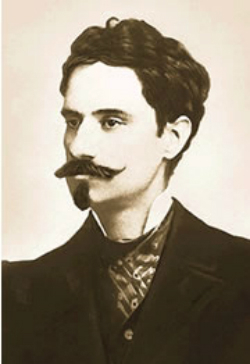"Human events depend on
furtive and indifferent circumstances.
Call it chance or providence; not even for
this thing ceases to exist".
Machado de Assis
Talking about this important Brazilian writer is a source of pride, as he has become one of the greatest icons in the field of Brazilian Literature.
In the field of arts, he stood out as a literary critic, short story writer, playwright, chronicler, poet and novelist. His work is divided into two phases: one that still had some remnants of the romantic era, but less idealized, more rational and true. Among them, the following works stand out: Helena, Resurreição, Iaiá Garcia and A Mão ea Luva.
And another that innovated the “artistic scenario” of its time, having as its starting point the work Posthumous Memoirs of Brás Cubas, in which Machado revealed himself as a "genius" for thematizing the psychological introspection of his characters, which was a characteristic memorable.
As a way to denounce the current situation, represented by Rio society, where patronage and the famous “knack” solved the problems arising from the ruling class, the writer enjoys an endless subtlety, based on an ironic and critical language of the reality.
Among his countless stories, the following stand out: O Alienista, Missa do Galo, The fortune teller, Almirante's Night, The mirror, Uns Arms, and others.
In them, Machado de Assis, in an ingenious way, is dedicated to the analysis of the human character through his characters. Revealing with this, the negative side, such as lying, marital betrayal, among others, very much to the taste of characteristics of the Realist era, which, unlike the romantics, marriage was seen as a way of ascension Social.
Below, we highlight some fragments of one of the stories, entitled:
A FEW ARMS
(...)
I'm not saying that she was at peace with the boys, because our Inacio wasn't exactly a boy. She was fifteen years old and well made. Uncultured head, but beautiful, the eyes of a boy who dreams, who guesses, who inquires, who wants to know and doesn't finish knowing anything. All this placed on a body not without grace, even if poorly dressed. Also the fault was before D. Severina to bring them naked like that, constantly. She wore short sleeves on every dress at home, half an inch below her shoulder; from then on, his arms were exposed. In fact, they were beautiful and full, in harmony with their owner, who was thick rather than thin, and did not lose color or softness because they lived in the air; but it's fair to explain that she didn't wear them like that for a face, but because she'd already worn out all her long-sleeved dresses.
It was not; he felt grabbed and chained by D's arms. Severina.
She had never seen others so beautiful and so fresh. The education she had had did not allow him to face them openly at once, it even seems that at first he looked away, annoyed. She looked at them little by little, seeing that they didn't have other sleeves, and so she was discovering them, aiming and loving. (...).
We can see a certain tone of eroticism on the part of the character who demonstrates a physical attraction to his mistress D. Severina, when she leaves her arms uncovered, thus awakening the interest in admiring them in an intentional way. The figure of the woman was no longer idealized, but seen on the material and physical plane.
Like this one, there is an infinity of other tales, all based on the theme focused on social reality and on the issue of human personality.
Do not stop now... There's more after the advertising ;)
By Vânia Duarte
Graduated in Letters
Brazil School Team

